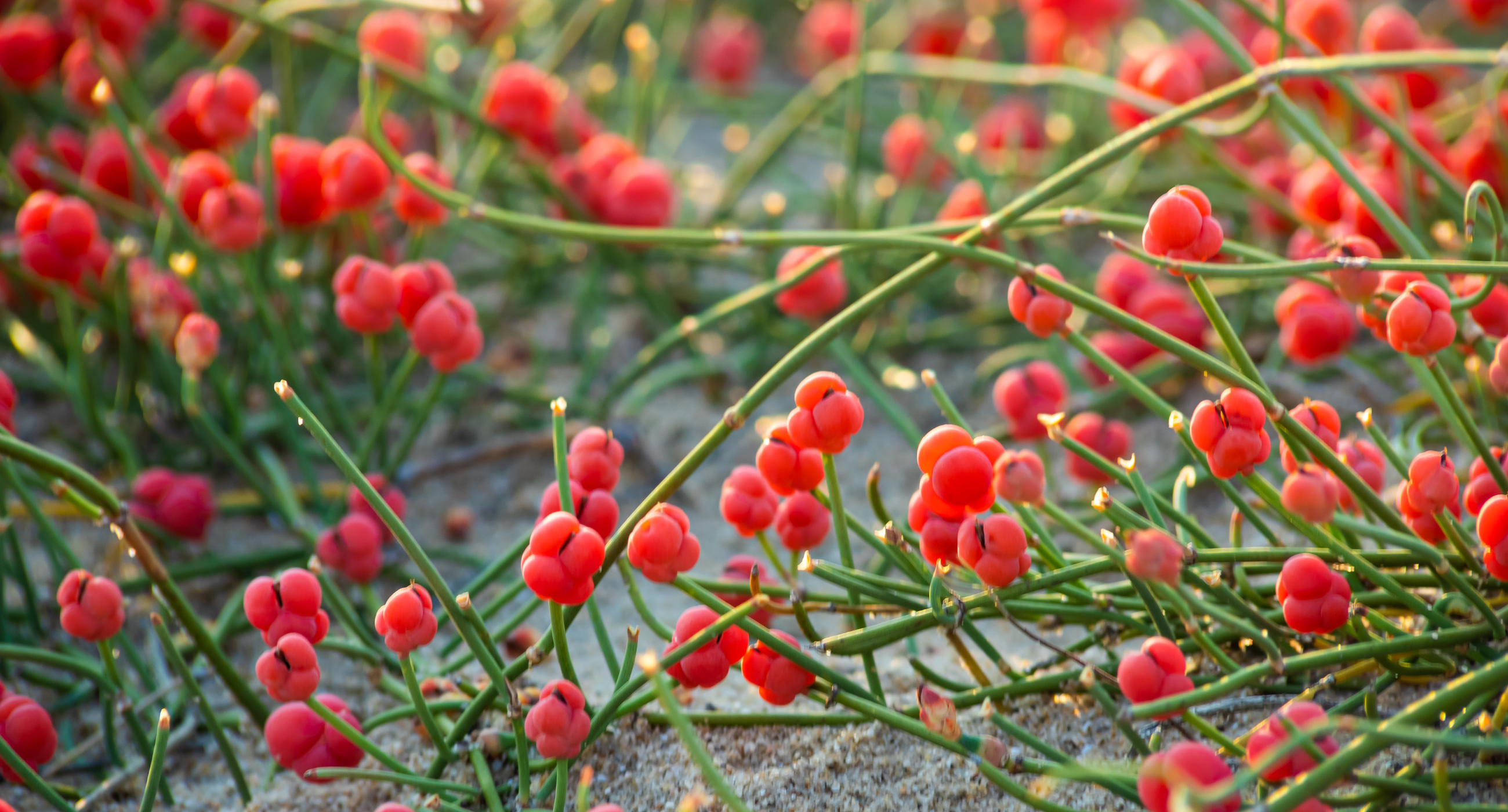
Ephedra
Scientific Name: Ephedra sinica
Herbal Profile: Ephedra
Scientific Name: Ephedra sinica
Family: Ephedraceae
Common Names: Ephedra, Ma Huang, Desert Tea, Mormon Tea, Squaw Tea
Description:
Ephedra is a small, shrubby plant native to arid regions of Asia, particularly China and Mongolia, but can also be found in parts of Europe and North America. The plant has jointed, yellow-green stems with small, scale-like leaves and is often found in desert climates. The stems of the Ephedra plant are most commonly used in traditional medicine. Ephedra has been a key herb in traditional Chinese medicine (TCM) for over 5,000 years, valued for its stimulating and bronchodilating effects.
Traditional Uses:
Ephedra has been used for centuries in traditional medicine, particularly in TCM, for its ability to stimulate the nervous system, improve respiratory function, and enhance circulation. Common traditional uses include:
- Respiratory Health: Ephedra is widely used to treat respiratory conditions such as asthma, bronchitis, colds, and flu. Its bronchodilating properties help open up the airways, reduce congestion, and improve breathing. It is often used to relieve symptoms such as wheezing, shortness of breath, and cough.
- Stimulant and Energizer: Ephedra acts as a central nervous system stimulant, increasing energy levels and alertness. It is traditionally used to combat fatigue and enhance physical performance.
- Weight Loss and Metabolism: Due to its stimulating effects on metabolism and thermogenesis, Ephedra has been used to aid in weight loss by increasing the body’s metabolic rate and promoting fat burning.
- Circulation and Blood Pressure: Ephedra has been used to improve circulation and increase blood pressure in individuals with hypotension (low blood pressure). It acts as a vasoconstrictor, narrowing blood vessels and raising blood pressure.
- Fever and Chills: In TCM, Ephedra is used to treat conditions characterized by fever and chills, such as colds and flu. It helps induce sweating, which is believed to help expel pathogens from the body.
- Allergies: Ephedra is sometimes used to alleviate symptoms of allergies and hay fever, such as runny nose, sneezing, and itchy eyes, due to its decongestant properties.
Active Compounds:
- Ephedrine: The primary active compound in Ephedra that provides stimulating effects on the central nervous system and bronchodilating effects on the respiratory system. Ephedrine increases heart rate, blood pressure, and metabolic rate.
- Pseudoephedrine: A compound similar to ephedrine but with milder effects. It is commonly used as a decongestant in over-the-counter cold medications.
- Tannins: Contribute to the astringent properties of Ephedra, which can help tighten tissues and reduce inflammation.
- Flavonoids: Offer antioxidant benefits and support overall health by reducing oxidative stress.
Preparation and Dosage:
- Tea (Decoction):
- Tincture:
- Capsules/Tablets:
- Combination Formulas:
Safety and Precautions:
- Regulatory Status: Due to safety concerns, the sale and use of Ephedra-containing products have been banned or restricted in many countries, including the United States. The FDA banned dietary supplements containing ephedrine alkaloids in 2004 due to risks of severe adverse effects, including cardiovascular events and death.
- Cardiovascular Effects: Ephedra can significantly increase heart rate and blood pressure, which can lead to serious cardiovascular events such as heart attack, stroke, arrhythmias, and hypertension. Individuals with heart conditions, high blood pressure, or a history of cardiovascular disease should avoid using Ephedra.
- Central Nervous System Stimulation: Ephedra can cause nervousness, anxiety, insomnia, tremors, and seizures due to its stimulant effects on the central nervous system. It should be used cautiously by individuals with anxiety disorders or seizure disorders.
- Contraindications: Ephedra should not be used by pregnant or breastfeeding women, children, or individuals with thyroid disorders, glaucoma, diabetes, prostate enlargement, or mental health conditions such as anxiety or schizophrenia.
- Medication Interactions: Ephedra may interact with various medications, including stimulants, decongestants, monoamine oxidase inhibitors (MAOIs), antihypertensives, and anticoagulants. Consult a healthcare provider before use if you are taking any medications.
- Potential for Abuse and Dependency: Due to its stimulant effects, Ephedra has the potential for abuse and dependency. It should be used with caution and only under the supervision of a qualified healthcare professional.
- Adverse Effects: Common side effects of Ephedra include headaches, dizziness, nausea, vomiting, rapid heartbeat, sweating, and anxiety. Severe adverse effects can include heart attack, stroke, seizures, and death.
Conclusion:
Ephedra is a powerful herb with a long history of use in traditional medicine for its stimulant, bronchodilating, and decongestant properties. While it can be effective for treating respiratory conditions, increasing energy levels, and supporting weight loss, its use comes with significant safety risks, particularly for cardiovascular health. Due to these risks, Ephedra is banned or restricted in many countries, and it should only be used under the supervision of a qualified healthcare professional. Individuals with underlying health conditions or those taking medications should avoid using Ephedra without medical advice.
